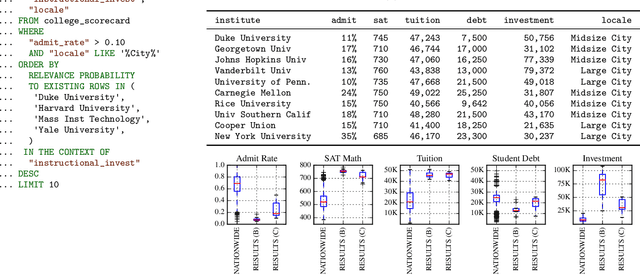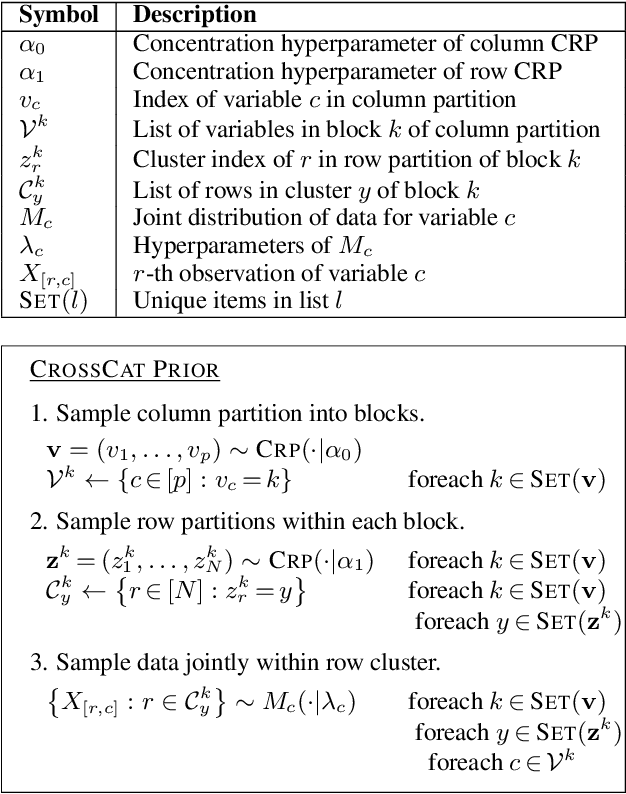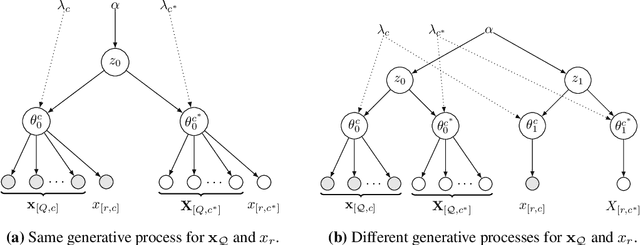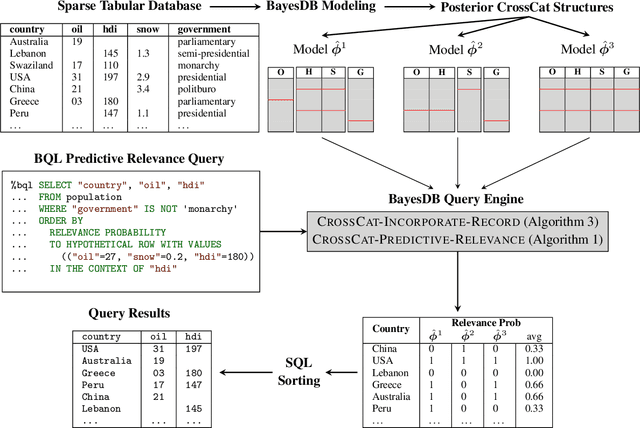Probabilistic Search for Structured Data via Probabilistic Programming and Nonparametric Bayes
Paper and Code
Apr 04, 2017



Databases are widespread, yet extracting relevant data can be difficult. Without substantial domain knowledge, multivariate search queries often return sparse or uninformative results. This paper introduces an approach for searching structured data based on probabilistic programming and nonparametric Bayes. Users specify queries in a probabilistic language that combines standard SQL database search operators with an information theoretic ranking function called predictive relevance. Predictive relevance can be calculated by a fast sparse matrix algorithm based on posterior samples from CrossCat, a nonparametric Bayesian model for high-dimensional, heterogeneously-typed data tables. The result is a flexible search technique that applies to a broad class of information retrieval problems, which we integrate into BayesDB, a probabilistic programming platform for probabilistic data analysis. This paper demonstrates applications to databases of US colleges, global macroeconomic indicators of public health, and classic cars. We found that human evaluators often prefer the results from probabilistic search to results from a standard baseline.
 Add to Chrome
Add to Chrome Add to Firefox
Add to Firefox Add to Edge
Add to Edge